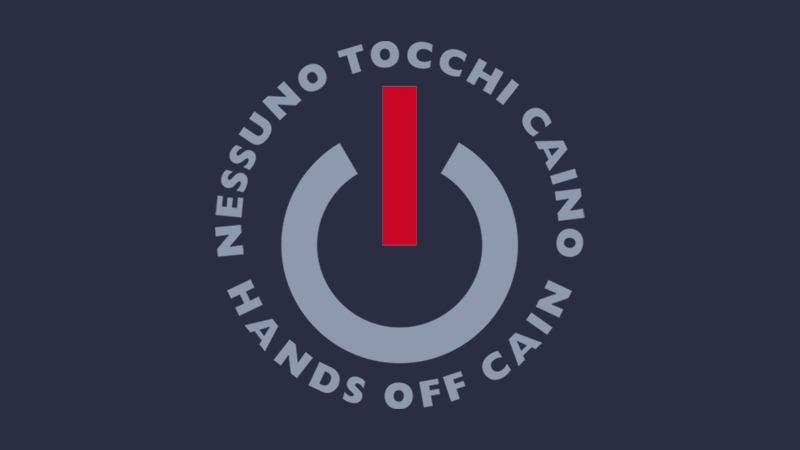16 May 2017 :
GENERAL MOTION
The members of Hands Off Cain, meeting at the General Assembly in Rome on 14 June 2003,
CONVINCED THAT:
- the abolition of the death penalty can not be imposed by decree, nor can be a lesson of civilization, prohibitionist, that civilized abolitionists give to executioners to civilize;
- the moratorium may instead be the place of encounter between one another, aimed at saving (in the meantime!) thousands of lives and avoiding clash of civilizations in a more tense and divided world after September 11;
- the moratorium is also a political step necessary to allow retaining countries to change their domestic laws towards abolition, as have done, for example, almost all Eastern European countries, South Africa and, for the first time, an American state, Illinois, thanks to Governor George Ryan;
- the moratorium is the way to give voice, hope and dignity (even) to those sentenced to death, not only to the American ones, but also to the unnamed, the desperate, the 'infamous' of the death penalty: detainees in the arms of Chinese, Iranian, Palestinian, Cuban death rows, and of all the other authoritarian regimes, prisoners that die in silence and general indifference;
- in these countries, the ultimate solution to the problem, rather than the fight against the death penalty, is the struggle for democracy, human rights and the rule of law;
- the campaign for the universal moratorium on capital executions, which began in Italy in the early 1990s, on the impulse of Hands Off Cain and the Transnational Radical Party, then the the European Union made its own, and sustained over the years by an ever-increasing number of Countries of all continents, has now come to a decisive point;
- the "hard and pure" line of European abolitionism, of governments and non-governmental organizations can effectively conceal the intention of failing - as was the case in 1999 at the General Assembly - of the fairly pragmatic and, therefore, rigorous initiative against the death penalty;
WHEREAS:
- Following the presentation, in 1994, by the Italian Government to the UN General Assembly of a resolution on the moratorium on executions (which was beaten by eight votes), in 1997 on an Italian initiative and 1999 on a European initiative the UN Human Rights Commission has adopted a resolution every year calling for "a moratorium on capital executions in view of the complete abolition of the death penalty";
- despite the international tension climate due to the war in Iraq, the death penalty resolution reached 75 co-sponsors (68 in 2002) at the last Human Rights Commission. So witnessing the positive evolution of the International Community on the issue of the right-obligation to intervention on humanitarian issues including the death penalty;
- in total, they have risen to 89 the countries that from 1997 to 2003 have co-sponsored the UN resolution on the death penalty;
- the legal and political situation of the death penalty in the world is radically and favorably changed with respect to the General Assembly of 1994, being 127 (out of 191 United Nations member states) the abolitionist countries (by law or de facto) and only 64 the retentionist;
- since 1993, when Hands Off Cain was founded, 33 countries have abandoned the death penalty. The situation has also changed since 1999, when the European Union decided to submit to the General Assembly, and at the last moment not to vote, a pro-moratorium resolution (then, the countries that were to various extent abolitionist were 116, and retentionist 72);
- of the 64 retentionist countries, 52 are dictatorial, authoritarian or illiberal. They in 2002 carried out 97.5% of the world's total executions and that only one country, China, has made at least 3,138 executions, approximately 77% of the total;
- they support the project of the World Democracy Organization promoted by the Transnational Radical Party, of which Hands Off Cain is a constituent subject.
- they greet the solemn commitment expressed, on behalf of the Italian Government, by the Vice President of the Council, Gianfranco Fini, on 6 May, when former Governor of Illinois George Ryan visited Italy, commitment to present at the forthcoming UN General Assembly, during the Italian presidency of the European Union, a resolution on the universal moratorium on capital executions.
THEY GIVE MANDATE
to the governing bodies of the Association to meet with the Governments of the European Union Member States, starting with the Italian one, meeting in this case before July 2, 2003, the date of the presentation of the EU Presidency Program, because the initiative for the UN moratorium on capital executions by the next UN General Assembly is included in the program, and to have the lobbying plan prepared by NTC, discussed and approved by the Assembly, aimed at obtaining a moratorium on co-promotion as well as the accession of countries on all continents.
They also give mandate to the governing bodies on the choice and the most appropriate and urgent steps to be taken -in convergence with the PRT campaign, 'No Peace Without Justice' and 'Italian Radical Party' aimed at strengthening the community of democracies in the world- towards countries that at the General Assembly may decide to co-sponsor, vote in favor or at least abstain on the resolution for the moratorium, or who may decide not to support initiatives promoted by the retaining countries, instead of sinking the death penalty initiative.
Lastly, they give mandate to the governing bodies to promote, in view of the date at the UN, information and public awareness events, starting with the collaboration with the Italian National of Singers, the media company Nexta.com, Oliviero Toscani - who are already engaged with Hands Off Cain in implementing the campaign "Stop the Death Penalty via the Internet” - and along with who else in the world may want to mobilize, join and support HOC to ensure humanity a historic goal in the fight for human rights: a universal moratorium of capital executions.








